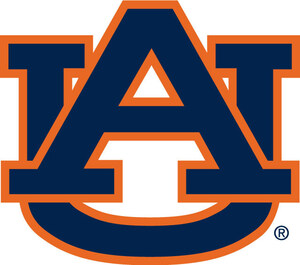AUBURN, Ala., Sept. 27, 2021 /PRNewswire/ -- The growing impact of the COVID-19 pandemic on Alabama families has revealed a desperate need for consolidation of up-to-date information on available food resources into an accessible, web-based location.
The Hunger Solutions Institute in Auburn's College of Human Sciences, in turn, developed the End Child Hunger in Alabama, or ECHA, County Food Guide to support the growing number of Alabama households facing food insecurity.
With the assistance of five institute team members, nearly 100 community volunteers and more than 2,500 hours of commitment, the food guide at aub.ie/foodguides now boasts a statewide database of nearly 7,000 food resources.
The National Food Access and COVID Research Team—a group of researchers studying the impact of COVID-19 on food access, food security and food systems—reports the pandemic has created an increase in food insecurity from 25% to 38%.
The food guide provides information about food resources through an interactive map of Alabama counties, which are clickable to access the listings of food resources in each county. Statewide volunteers and community partners maintain and update the map on a regular basis.
Residents in every county have utilized the web-based map, with Lauderdale, St. Clair and Marengo counties accounting for the most page views. Since spring 2020, more than 10,000 people were reached on ECHA social media regarding the food guide.
The Hunger Solutions Institute started End Child Hunger in Alabama, its first initiative, in 2013 as a statewide effort to move Alabama into the top 25% nationally in child food security.
Food security is defined as having reliable access to a sufficient quantity of affordable, nutritious food. Food insecurity is not having that access. In Alabama, one in four children faces food insecurity and one in four households is food insecure, meaning 17% of the population is not getting enough food.
In ECHA's first five years, the rate of child food insecurity in Alabama dropped almost 4%, according to Alabama Possible, a statewide nonprofit organization that removes barriers to prosperity in Alabama through education, collaboration and advocacy.
The ECHA County Food Guide is an extension of the ECHA mission, especially under current circumstances that may hinder a family's ability to find affordable and nutritious food. Since ECHA's inception, Alabama Gov. Kay Ivey has been one of its strongest supporters. She continues to follow the work of Auburn's Hunger Solutions Institute and the progress ECHA has made for Alabamians.
"The ongoing health crisis continues to take a toll on families in Alabama and around the globe. Sadly, the impacts of this virus are reaching our youngest citizens, and for some, this could mean worrying about their next meal," Ivey said. "As a longtime advocate for End Child Hunger in Alabama, I am proud to see a new, comprehensive tool that will greatly aid those who need it most, especially during the evolving COVID-19 situation."
Alicia Powers, Hunger Solutions Institute managing director, echoed Ivy's advocacy to end child hunger.
"ECHA partnering organizations diligently work to ensure every child in Alabama has access to nutritious foods," Powers said. "In the case of COVID-19, access must include not only ensuring the physical presence of a food resource, but also informing the public of the most up-to-date operating procedures for food resources. The Hunger Solutions Institute is pleased to coordinate and maintain the ECHA County Food Guide supporting Alabamians as we all continue to navigate the impact of COVID-19."
ECHA's network now includes more than 50 key state leaders and has supported successes involving child nutrition programs, state legislation, public campaigns and many other initiatives.
The End Child Hunger in Alabama County Food Guide was one of seven programs recognized before Auburn home football games this season.
Auburn University is a nationally ranked land grant institution recognized for its commitment to world-class scholarship, interdisciplinary research with an elite, top-tier Carnegie R1 classification, life-changing outreach with Carnegie's Community Engagement designation and an undergraduate education experience second to none. Auburn is home to more than 30,000 students, and its faculty and research partners collaborate to develop and deliver meaningful scholarship, science and technology-based advancements that meet pressing regional, national and global needs. Auburn's commitment to active student engagement, professional success and public/private partnership drives a growing reputation for outreach and extension that delivers broad economic, health and societal impact.
SOURCE Auburn University

Related Links
WANT YOUR COMPANY'S NEWS FEATURED ON PRNEWSWIRE.COM?
Newsrooms &
Influencers
Digital Media
Outlets
Journalists
Opted In






Share this article